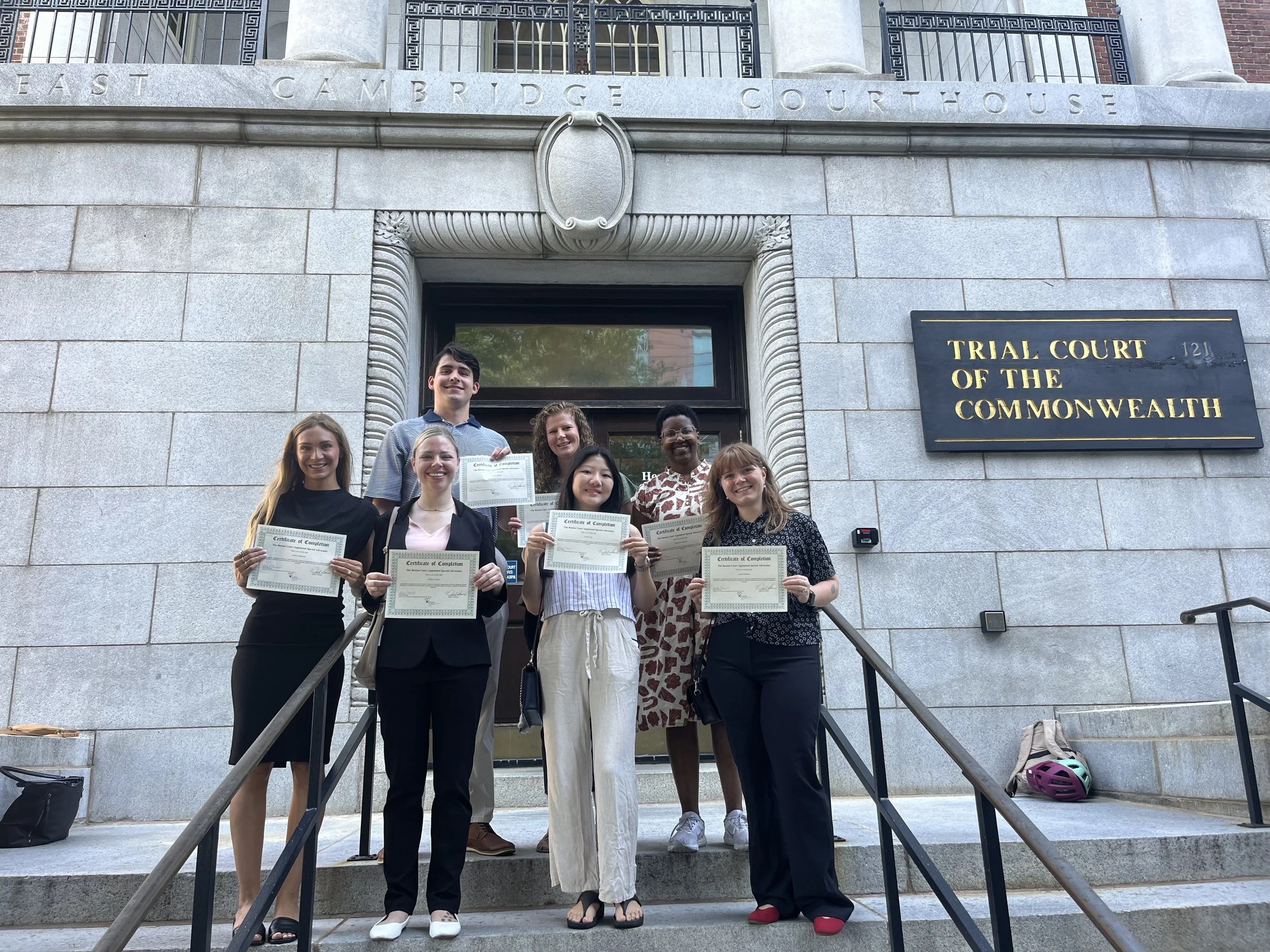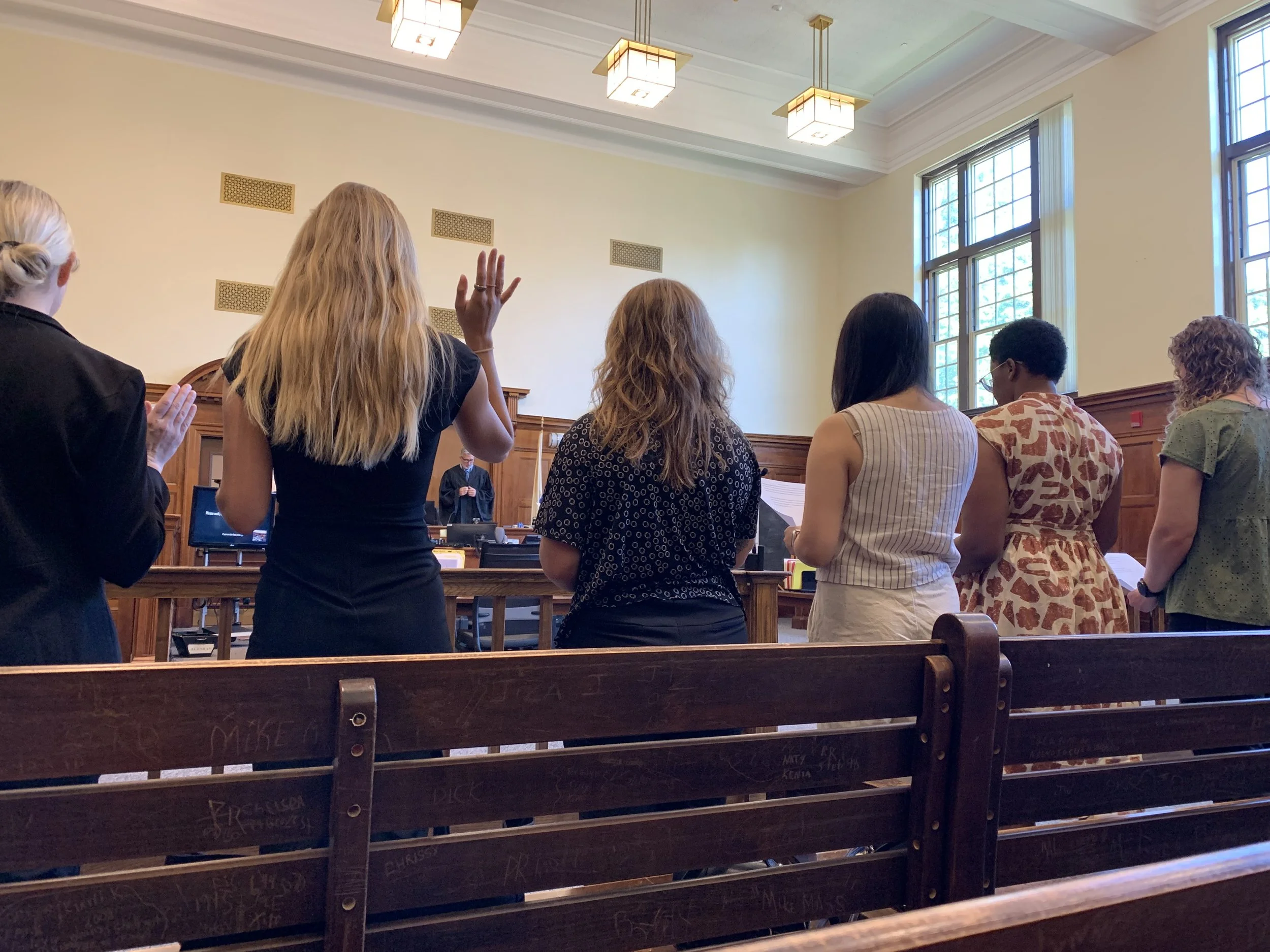Boston CASA: fighting for a brighter future, one child at a time
(6-7 minute read)
Boston CASA logo from the website.
In a child welfare system that can feel chaotic, impersonal, and isolating, Boston CASA (Court Appointed Special Advocates) offers something rare and powerful: a consistent adult who shows up, listens, and advocates for a child’s best interests - every step of the way.
Founded as an independent nonprofit in 2012, Boston CASA recruits, trains, and supports volunteers to advocate for children who have experienced abuse and neglect, most of whom are navigating the complexities of foster care. Operating across Suffolk and Middlesex Counties, Boston CASA now supports over 300 children annually with a team of around 250 trained volunteer advocates.
A unique and powerful role
Unlike mentors or case managers, CASA volunteers are sworn in by a judge and granted legal authority to submit independent reports to the court, offering a direct line of influence in the decisions that shape a child’s future. Each volunteer is assigned to just one child or sibling group at a time, allowing them to form strong, trusting relationships and advocate for the child’s medical, emotional, and educational needs.
“CASA volunteers are the only ones sworn in by a judge and legally authorized to speak in court solely in the best interest of the child. They often become the most stable and consistent adult presence in the child’s life. ”
Boston CASA Executive Director Nicole Stewart. Photo provided by Teak Media.
The average CASA commits to a case for 18 months, meeting with the child or sibling group at least twice a month, connecting with all stakeholders in their lives - teachers, therapists, caseworkers - and submitting regular court reports to help judges make informed, compassionate decisions.
Transformational impact
For children navigating foster care, many of whom move through multiple homes or face daunting statistics around homelessness, incarceration, or interrupted education, having a trusted adult can be life-changing.
Stewart shared the story of Chris Willis, a 70-year-old volunteer from Bourne. Assigned a 13-year-old boy who had lost his mother to addiction and was “hot bedded” (moved between foster homes every night for a month), Willis built trust slowly through board games, football games, and consistent presence. Eventually, he worked with the child’s legal team to dismiss 13 assault and battery charges, clearing a path to a brighter future.
“The real work is done in everyday things. It’s being the adult who keeps showing up and supporting them, simply because they care.”
Boston CASA volunteers gather outside the courthouse after being sworn in as advocates for children in the foster care system. Photo provided by Teak Media.
Who becomes a CASA?
Boston CASA volunteers come from all backgrounds - retirees, teachers, nurses, attorneys, parents, and more. What they share is a deep desire to help and the willingness to show up for a child, even when it’s difficult.
Volunteers undergo 35 hours of pre-service training and 12 hours of annual continuing education. They are supported throughout by Boston CASA’s staff, peer groups, and a personal Advocate Supervisor.
“I’ve seen it time and time again, the life-changing difference that they’re making in the lives of these children. And I would say in turn, when I talk to CASAs, what they say is that being a CASA is an incredible and meaningful experience for them too, and that as much as they’re giving, they’re also receiving something and learning a lot about life from the kids that they’re working with.”
Beyond advocacy: building life skills and leadership
In addition to individual advocacy, Boston CASA runs a Youth Advisory Board for teens and young adults (ages 14-22) aging out of foster care. Participants meet for 10 months, receiving a stipend while learning life skills, public speaking, and civic engagement. Many become advocates for systemic change in the foster care system - paying forward the support they’ve received.
“We teach [kids] about the power of their voices, advocacy, and speaking with legislators. ... [T]his is the kind of robust support that our kids, and our society, need to influence improvements for future foster youth.”
Newly appointed Boston CASA volunteers take their oath of service in front of a judge, marking the beginning of their advocacy journey on behalf of children in the foster care system. Photo provided by Teak Media.
How to get involved
Becoming a CASA begins with a one-hour virtual info session. Volunteers must be at least 21, able to commit to 18 months of service, and ready to approach challenging situations with compassion and diplomacy. Boston CASA also seeks community liaisons and interpreters to help connect with children and families from diverse backgrounds.
For those unable to volunteer, donations help fund training, and Boston CASA’s ambitious five-year growth plan: to double its budget and triple the number of children served by 2028.
“Despite the really good work they’re doing, and the differences they’re making in the lives of children, we are only able to serve roughly 15% of [the] children who are eligible for a CASA. In 2023, we partnered with Community Action partners and established a five-year growth plan to double our budget and triple the number of children we serve by 2028. We’re finishing up Year 2 of this growth plan, and this fiscal year alone, our budget has grown more than 25%.”
You can learn more about Boston CASA’s volunteer opportunities in our previous coverage: Boston CASA Seeks Volunteers to Advocate for Foster Youth.
A personal connection
For Stewart, this mission is more than professional - it’s personal. She spent nearly two decades in education and youth programming before becoming Executive Director, but her passion stems from her own childhood.
“From the time I was three years old until I aged out of the system [at] 22, I was in foster care. Before the age of 15, I lived in at least seven different foster homes. I was so fortunate to have one foster mother, the only person, in fact, that I ever called mom, who believed in me, who showed me the power of a trusted adult. She gave me a good foundation for success through education, and that set me on the path to eventually earn two Master’s degrees and become a licensed school principal and a licensed independent clinical social worker.”
Stewart adds, “I want people to know is that one caring adult really does make a significant difference and helping these young people to beat the odds that are truly stacked so high against them.”
Visit the Boston CASA website to learn more, attend an info session, or support their work.




